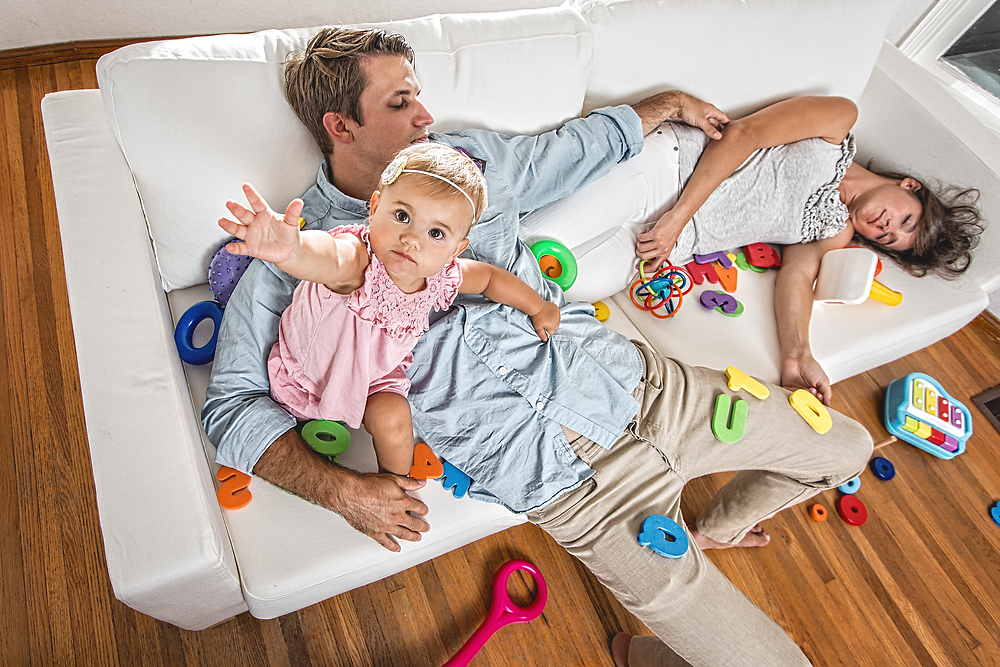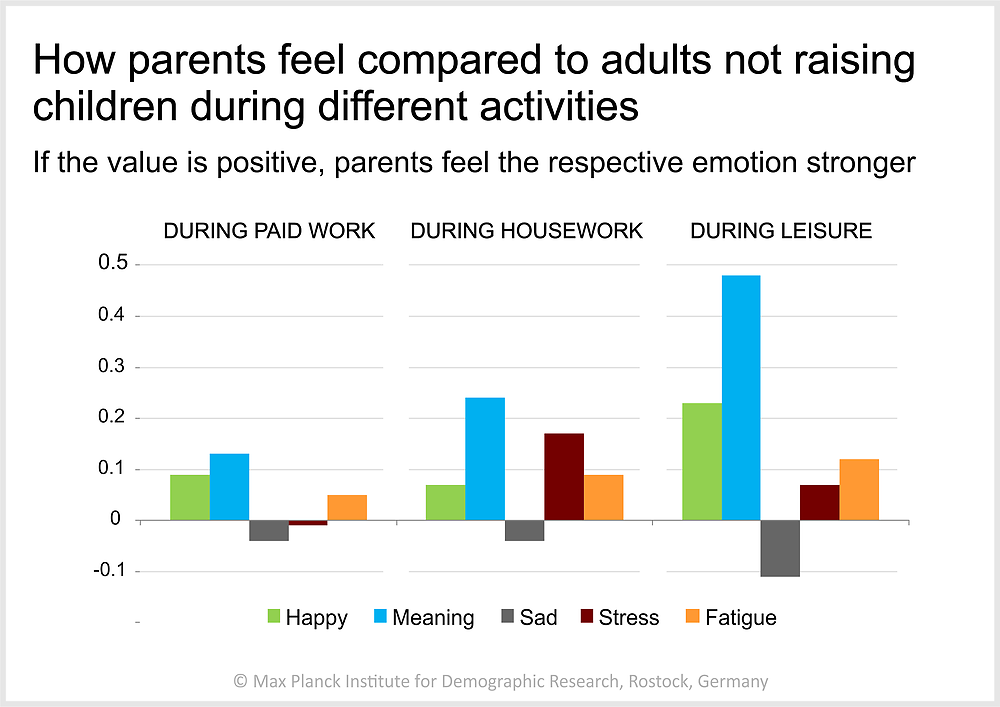June 10, 2020 | Press Release
For Better or Worse: Parents Experience More Emotions in Everyday Life, Compared to Non-parents

Parents are more often stressed and tired than adults not raising children, especially when they have small children. © iStockphoto.com/skodonnell
Parents experience more meaning in life and more happiness than adults without minor children. But only as long as they spend time with their children. MPIDR researcher Daniela Negraia found that when at the workplace there are no differences in emotional states.
Parenting minor children, not only makes adults happy, it is more like a whole range of emotions become more intense. Daniela Negraia, researcher at the Max Planck Institute for Demographic Research (MPIDR) in Rostock, Germany, studied the emotional states of adult Americans over the course of the day and distinguished between parents and adults not raising children. For her analysis she used data from the American Time Use Survey.
“All in all, it turns out that parents are happier, less often sad and feel more meaning in life than nonparents” says Daniela Negraia. However, she adds: “Parents are also more often stressed and tired, especially when they have small children.”

Especially in their leisure time during activities with their children, parents feel more sense in life than adults who are not raising children. © MPIDR
Negraia and her colleague found that parents feel more positive emotions like happiness and meaning than adults not raising children especially when they spend time with their children; that is, in their leisure time and during housework. At work, parents generally do not feel any different than non-parents.
With one exception: mothers are happier at work than women not raising children. "This could be because mothers do not look after their children at work, and concern for their current well-being may take a back seat. Providing for their families, being a role model for their children, and having opportunities to socialize with adults are other potential explanations for this finding," suspects Daniela Negraia.
The MPIDR researcher published her findings in the journal Social Psychology Quarterly. "I would like to emphasize that both lifestyles, with and without children, are associated with positive and negative aspects of well-being," concludes Daniela Negraia.
Original Publication
Negraia, D., Augustine, J.: Unpacking the Parental Well-Being Gap: the Role of Dynamic Features of Daily Life across broader Social Contexts. Social Psychology Quarterly. (2020). DOI: 10.1177/0190272520902453
This paper was awarded with the IPUMS Research Award. It is a winner of the Time Use Award: ipums.org/impact/ipums-research-award